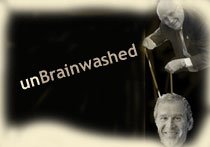For The Love Of Nameless Skeptics
This article is an interesting read. Even if you are not very familiar with Edward Said and his background, the critique is a must read. Especially now- because as we debate Iraq, the ISG release- will we look at some of our prevailing assumptions that sit beneath the surface?
"How Edward Said Took Intellectuals For A Ride" an opinion piece at Salon. Which is not to say that his opinion is our opinion. I dont feel particularly qualified to have an articulate "scholarly"opinion, truth be told-but think that what this does is really introduce us to a critique that seems to be grounded in some relative objectivity. No?I think we need to look at these questions with fresh eyes. All "important books" and views should be subject to the test of time, their validity or relevance under review perpetually.
(Link Here) Gary Kamiya looks at imperialism, the "immutable Middle East", and Robert Irwin's "Dangerous Knowledge: Orientalism and Its Discontents"
Here are some snippets , but read it if you can.
"In "Orientalism," Said ranged far and wide...He unearthed countless examples of grandiose statements made by Westerners about the mysterious, threatening, promiscuous, God-obsessed, immutable East. These statements were not coincidental or contingent, Said argued, but reflected a universal imperialist discourse that historically governed everything any Westerner could say or think about the Arab world. As Said put it in reference to the 19th century, "It is therefore correct that every European, in what he could say about the Orient, was consequently a racist, an imperialist, and almost totally ethnocentric." To the end of his life, he believed that this view of the Arab world still held sway."
"Said's book provoked a furious controversy that still rages today. With America trapped in Iraq, and with the Middle East on the verge of a regional crisis, the debate about "Orientalism" is not a merely academic one. Bush's entire "war on terror," and in particular his bizarre decision to invade Iraq, could be seen as driven by Orientalist beliefs and assumptions. Moreover, ominously and quite predictably, "Orientalist" ideas in Said's sense are beginning to pop up in the national discourse. One of the peculiar ironies of the Iraq war is that its architects used politically correct pieties to justify it. Bush and former deputy defense secretary Paul Wolfowitz repeatedly used nameless skeptics, "who say the Arab world isn't ready for democracy," as straw men to give an idealist gloss to their plans for war. Today, disillusioned and angry conservatives are beginning to rebel against these pieties. Rush Limbaugh, as usual, gave crude voice to the inchoate beliefs of millions when he said that we should just "blow the place up." As the Iraq nightmare deepens, these opinions are likely to become louder."
And they are, these sentiments continue. There is something paradoxical and disturbing about how people respond to a hopeless situation. Have we in fact predetermined to a certain extent that the Middle East is impermeable, impenetrable? To some this means stay out of it. To others, it means step up drastic measures. I dont like the sound of that.














3 comments:
It seems to be the mindset of some of those on the right that we need to commit genocide on a grand scale in the Middle east and that will somehow solve all our problems of having all those inconvenient indigenous people living above all our Hummer Juice.
OH my Scannon you really cut to the chase dont you.
I've only read one book by Said, enhanced by columns he wrote for the Nation, and I always thought his views were respectable.
In a nutshell, we don't understand Islam, so how are we going to "fix" the Middle East? Blowing it to smithereens seems not to have worked so well...
Post a Comment